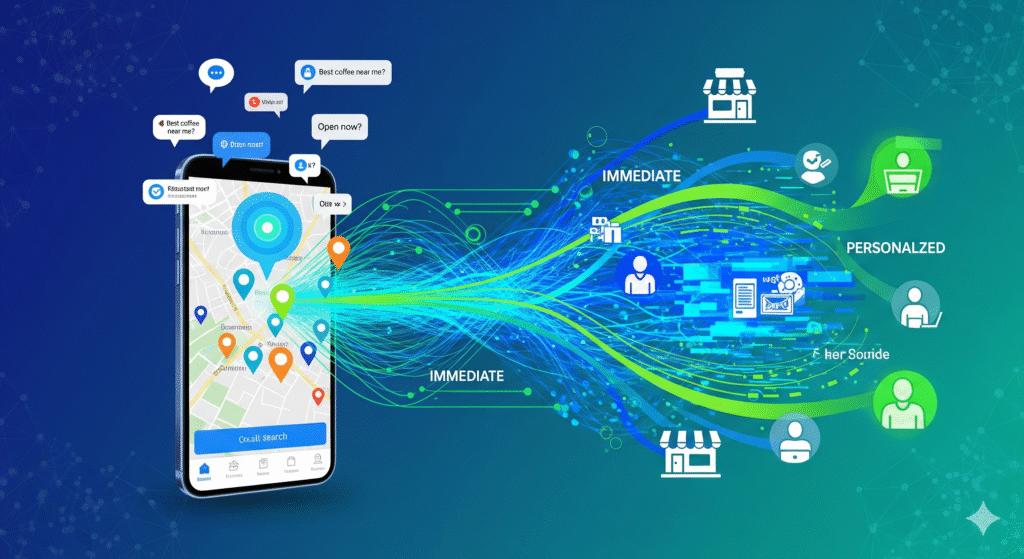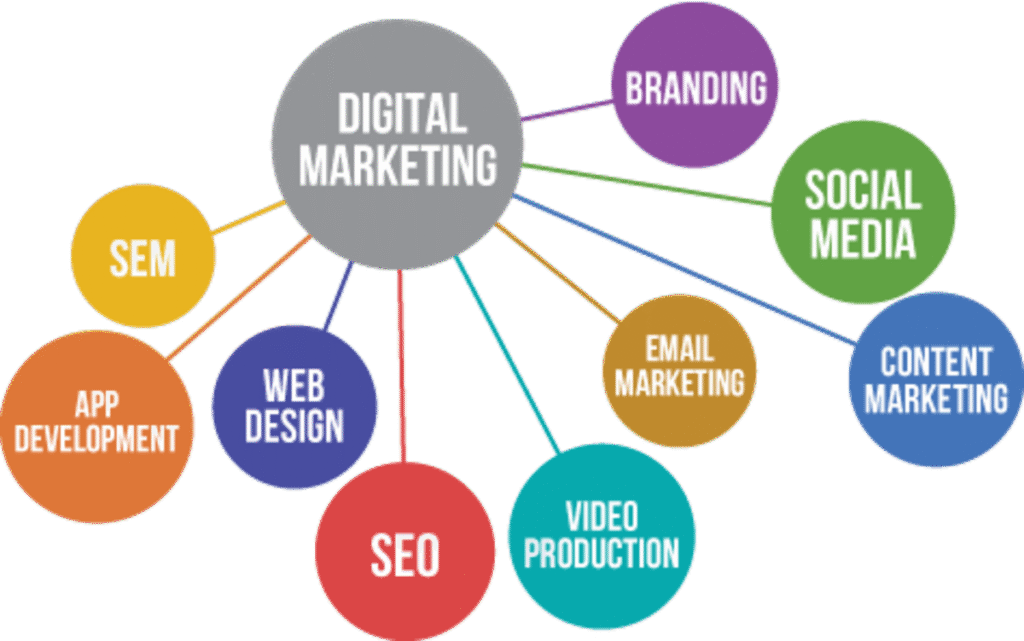
In today’s digital world, search is changing faster than ever. Just a few years ago, people typed short keywords into Google like “best pizza London.” Now, they ask longer, conversational questions such as “Where can I find the best pizza place near me that’s open late?”
This shift isn’t just about Google anymore. With the rise of conversational AI search—think ChatGPT, Google’s AI Overview, Perplexity, and other AI-powered assistants—businesses need to rethink how they show up online. For local businesses, this is a massive opportunity to connect with customers who are actively searching for nearby products and services in natural, everyday language.
At Vision Ranking, we’ve seen firsthand how businesses that adapt to this new era of search get more visibility, more leads, and stronger local brand presence. Let’s explore why conversational AI matters for your local business—and how you can make sure you’re not left behind.
What Is Conversational AI Search?
Conversational AI search uses natural language processing (NLP) and machine learning to understand questions and deliver precise, human-like answers. Instead of relying only on traditional search engine results pages (SERPs), AI tools summarize the best answers and present them in a way that feels like a conversation.
For example:
- Traditional search: “dentist near me” → you get a list of websites.
- Conversational AI search: “Which is the most trusted family dentist in my area that accepts weekend appointments?” → the AI gives you direct recommendations, often including reviews, operating hours, and directions.
This means your business needs to be optimized not just for keywords, but for natural, conversational queries.
Why Conversational AI Matters for Local Businesses
- Customers Are Asking Real Questions
People no longer type robotic keywords; they ask full questions. If your content doesn’t answer these directly, AI tools may overlook your business. - AI Summaries Shape Buying Decisions
Many AI-powered platforms summarize answers into “top recommendations.” If your business appears in that summary, you’ve won visibility before the customer even clicks a link. - Voice Search Is Growing
Conversational AI overlaps with voice assistants like Siri, Alexa, and Google Assistant. Local businesses that optimize for natural, spoken queries capture this audience. - Local SEO Gets Supercharged
Conversational search leans heavily on local intent: “near me,” “open now,” “best rated.” If your business is optimized properly, AI can highlight you as the most relevant option.
At Vision Ranking, we help local businesses take advantage of these shifts by creating content that answers questions naturally, strengthens online profiles, and improves local authority.
How Local Businesses Can Optimize for Conversational AI
Here are some actionable steps you can take:
1. Create Question-Based Content
Think about what your customers are actually asking. Instead of only targeting “best coffee shop NYC,” create content like “Where can I get the best latte in NYC?” or “Which coffee shops in NYC have free Wi-Fi?”
2. Optimize Google Business Profile
AI systems pull a lot of data from Google Business Profiles. Make sure yours is complete, updated, and includes FAQs, reviews, and real photos.
3. Use Local, Conversational Keywords
Incorporate natural phrases like “open late,” “near downtown,” or “family-friendly.” These are the kinds of words people actually say in conversation.
4. Collect and Highlight Reviews
AI prioritizes trustworthy recommendations. Positive reviews with keywords like “best,” “affordable,” or “excellent service” increase your chances of being featured in AI answers.
5. Leverage Structured Data
Schema markup helps search engines and AI tools better understand your business details—like hours, location, and services.
6. Keep Content Human-Centered
Don’t write for algorithms alone. Write like you’re talking to your ideal customer. That’s exactly what AI systems are trying to replicate.
At Vision Ranking, we specialize in aligning these strategies with both traditional SEO and the emerging world of generative AI optimization—so local businesses don’t just survive but thrive.
The Future of Local Search: Conversational, Personalized, Immediate

The businesses that adapt today will dominate tomorrow. Imagine a customer asking:
“Which bakery near me has gluten-free cakes available today?”
If your bakery has optimized content, updated product listings, and reviews that mention “gluten-free,” AI can spotlight you instantly.
That’s the power of conversational AI search—it brings customers right to your doorstep.
FAQs About Conversational AI Search for Local Businesses
1. What is conversational AI search in simple terms?
Conversational AI search is when people use natural, everyday language to find information online, and AI-powered tools respond with clear, human-like answers.
2. How does conversational AI affect local SEO?
It makes search more question-driven. Local businesses must create content that answers specific queries like “best plumber near me for emergencies” instead of just “plumber near me.”
3. Why should small businesses care about AI-driven search?
Because customers are already using it! If your business doesn’t show up in AI summaries, you could lose visibility to competitors who optimize early.
4. What’s the connection between conversational AI and voice search?
They go hand-in-hand. Voice searches are naturally conversational, so optimizing for AI-driven queries also improves voice search results.
5. Can reviews help my business appear in AI-powered searches?
Yes. Reviews that mention your services, products, or qualities like “affordable” or “family-friendly” help AI systems highlight your business as trustworthy.
6. Do I need special tools for GEO (Generative Engine Optimization)?
Not necessarily. Start with solid local SEO: Google Business Profile, structured data, question-based content. Agencies like Vision Ranking can then layer in advanced GEO strategies.
7. Is conversational AI search only about Google?
No. Platforms like ChatGPT, Perplexity, Bing AI, and others also pull local recommendations. Optimizing broadly increases your chances of being featured across multiple AI tools.
8. How often should I update my content for AI optimization?
Regularly! Update seasonal offers, FAQs, service details, and customer reviews. AI prioritizes fresh, accurate, and relevant information.
Final Thoughts
Conversational AI search isn’t a passing trend—it’s the future of how people find local businesses. By answering real questions, keeping your profiles up-to-date, and focusing on natural, human-friendly content, you’ll stand out where it matters most.
At Vision Ranking, we help local businesses stay ahead of this curve with strategies that blend SEO, local visibility, and generative engine optimization. If you want your business to appear in AI-powered search results and attract more local customers, now’s the time to act.

